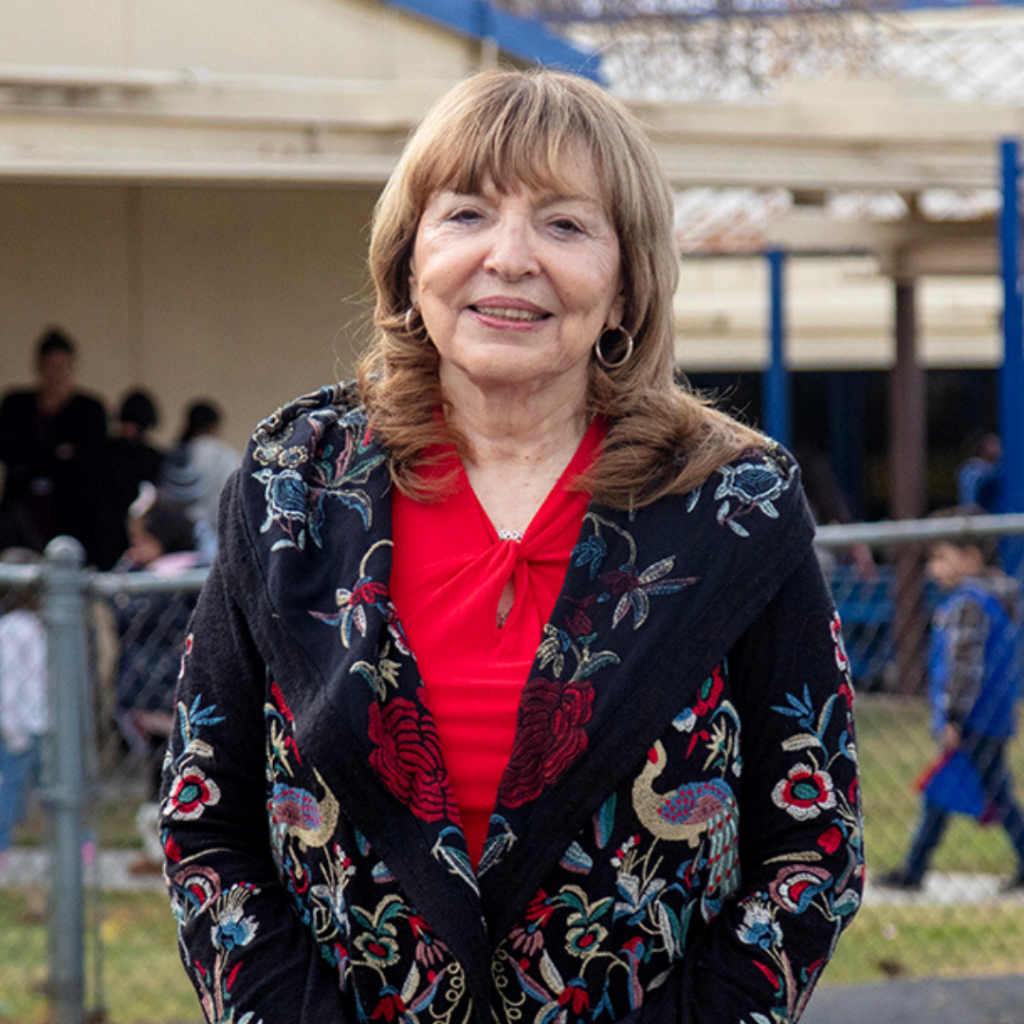Transforming language and literacy education for early childhood English learners
While working in under-resourced schools, Linda Ventriglia-Navarrette, Ph.D. witnessed how children learning English often fall behind. This experience motivated Navarrette to create Project Moving Forward and its “RULE of 3” curriculum, a new approach proven to accelerate language and literacy attainment for early childhood English learners. A critical distinction of Navarrette’s model is that students learn through analyzing and producing independent thought rather than through memorization alone. The RULE of 3 method includes three steps — REHEARSE, ANALYZE, and PRODUCE — and combines analytical thinking, hand gestures and movement, and peer interactions to build language and literacy skills. The approach is reinforced at the student’s home with extensive digital content and an animated teacher that engages the entire family.
Navarrette’s work is also motivated in part by her experience teaching educators in South Africa and an inspiring interaction with activist and politician Nelson Mandela. He encouraged her efforts to cultivate independent thinking and told Navarrette to “keep moving forward.” With Mandela’s inspiration and experience working in diverse schools, Navarrette developed her curriculum which, now taught in over 800 classrooms, is significantly reducing student opportunity gaps across California and nationwide.
Emergent bilinguals are capable of learning a rigorous curriculum. Through meaning-based, constructive learning they can master the foundational literacy skills needed for school success.
— Linda Ventriglia-Navarrette, Ph.D.
Challenge
- Roughly 40 percent of California public school students speak a language other than English at home. While many of those students are fluent in English, more than one million are English language learners (ELLs) or “Emergent Bilinguals.”[1]
- The nation’s public education system is not adequately equipped to support ELLs with fewer than 79,000 teachers nationwide trained to teach 4.6 million students learning English (a 1:59 ratio).[2]
- The common practice of segregating ELLs by their fluency level has been determined by many researchers to limit progress, in part because students have limited opportunities to interact with speakers who can model fluency.
Innovation
- Navarrette based her model on Lev Vygotsky’s theory that cognitive development stems from social interactions, and children learn better when they analyze and co-construct knowledge with partners. Her “RULE of 3” method teaches a three-step process: rehearse, analyze, and produce. The method emphasizes teaching the meaning of words first, then analyzing the sounds in the words they have learned.
- In response to the COVID-19 pandemic, Navarrette created the web-based “ABC RULE of 3 Pandaverse,” which features 350 video lessons taught by an animated “Mrs. Panda” character, along with digital games and assessments.
- With schools re-opened, digital lessons with Mrs. Panda are now incorporated into classrooms and accessible at home. The blended approach combining in-person and online instruction enhances the acquisition of language and literacy skills. The online program can also benefit a child’s entire family when accessed at home.
Impact
- In her role as researcher at UC Riverside, Navarrette has conducted several academic studies exploring the efficacy of the curriculum. One randomized study found that students exposed to “RULE of 3” gained 78 points on their standardized English learner tests, compared to average of four points in the control group.[3]
- In Moreno Valley Unified District schools teaching the “RULE of 3” curriculum, the achievement gap for ethnic and socioeconomically disadvantaged students was reduced from a 13 percent gap to two percent.
- Navarrette’s recent expansion to transitional kindergarten (TK) and use of the Pandaverse show early signs of effectiveness. On standardized literacy assessments 74 percent of “RULE of 3” TK students had higher scores than the national kindergarten sample. Some students in “RULE of 3” classes were promoted to first grade, bypassing kindergarten, while none in a control group made that leap.
Opportunity
- Navarrette expresses a strong interest to scale her model and reach at least one million students. She has guided replication in several California districts, particularly in Riverside County, the Central Coast, and the Central Valley, and is in the early stages of bringing the model to Los Angeles and San Bernardino counties.
- Navarrette hopes to increase her capacity by hiring trainers and developing digital training modules. This would allow the organization to scale without compromising Navarrette’s deep engagement in districts.
- Panda has the potential to reach millions more children, teachers, and parents. Navarrette is poised to scale the effort, including expanding content and broadening availability through new platforms.
Issue Areas
The written profile and video reflect the work of the leader(s) the year they received a Leadership Award. Please contact the leader(s) for current information.
